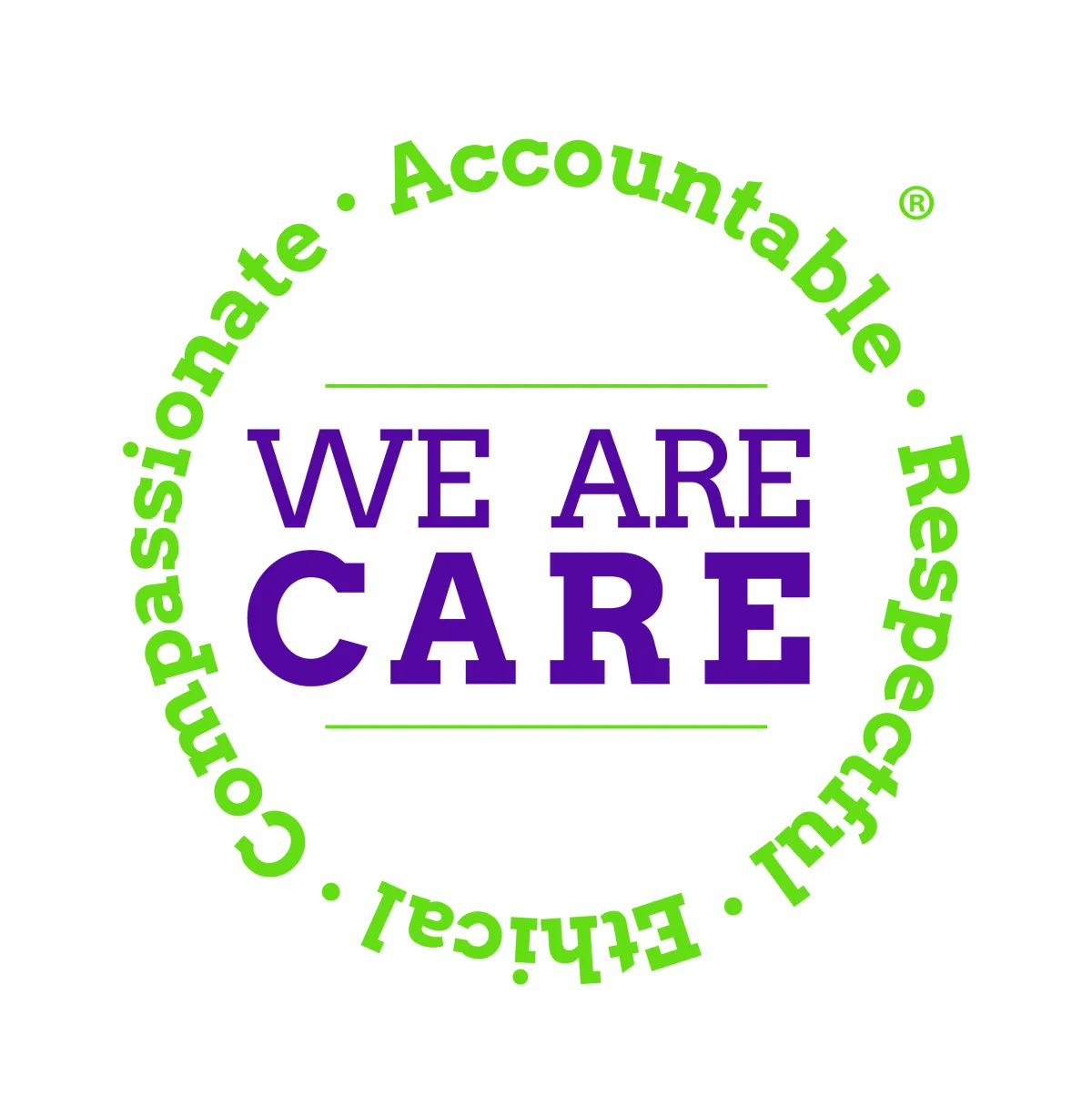
Blog

Find Trusted In-Home Companion Care for Your Loved Ones
Comprehensive Guide to Companion Care: Benefits, Services, and How to Choose the Right Caregiver
Companion care services support seniors with non-medical assistance that enhances daily life and emotional well‐being. These services provide social encounters, help with everyday tasks, and programs to reduce loneliness or depression. As aging brings physical, emotional, and sometimes cognitive challenges, companion care offers empathetic, reliable support through trained caregivers. This guide examines in-home senior care services and benefits, explains how to choose a caregiver, outlines career opportunities, discusses affordability and support resources, and reviews safety measures to help seniors live securely at home.
To begin, the article details elderly companionship services, reviews key benefits, distinguishes companion care from medical care, and explains practical advice for selecting and managing caregivers. It also explores support systems and concludes with an analysis of companion care’s role in enhancing seniors’ safety and quality of life.
What Are Elderly Companionship Services and How Do They Support Seniors?
Elderly companionship services offer non-medical support that meets seniors’ emotional, social, and practical needs while helping them maintain dignity and independence. These services reduce feelings of isolation and improve quality of life by assisting with routine tasks and fostering a sense of connection.
What Activities Are Included in Companion Care Services?
Companion care services generally include: - Friendly social visits and conversation- Recreational outings and group activities - Meal preparation and light housekeeping - Assistance with errands and transportation - Help with hobbies, health routine monitoring, and medication reminders
For example, a caregiver might accompany a senior to a community event or assist with a video call to keep family connections strong. These activities promote an active, healthy lifestyle while building trust and friendship.
How Does Companion Care Improve Quality of Life for Seniors?
By providing consistent social interaction and assistance with daily living, companion care helps prevent the isolation that leads to depression and worsened physical health. Regular engagement supports cognitive functions, reduces anxiety, and builds confidence. The emotional support and reassurance caregivers provide encourage seniors to remain involved in community activities, ultimately boosting both mental and physical health.
What Is the Difference Between Companion Care and Medical Care?
Companion care and medical care differ primarily in scope and focus. Medical care, delivered by registered nurses or healthcare professionals, addresses clinical needs such as medication administration and chronic disease management. In contrast, companion care emphasizes non-medical support, focusing on social connection, everyday assistance, and overall well-being. This distinction allows families to combine both types of care as needed.
What Are the Key Benefits of Companion Care for Seniors?
Companion care creates a nurturing environment that supports emotional well-being, independence, and practical daily routines while reducing social isolation. These services value seniors’ quality of life and dignity.
How Does Companion Care Help Maintain Senior Independence?
Companion care assists seniors with activities of daily living—such as bathing, dressing, meal preparation, and light housekeeping—helping them stay in familiar surroundings. Caregivers also encourage self-care and decision-making, ensuring a balance between receiving help and maintaining autonomy. This support minimizes accidents and delays the need for more intensive institutional care while preserving confidence and self-worth.
What Emotional and Social Benefits Does Companion Care Provide?
Regular, meaningful interactions with caregivers help alleviate loneliness and reduce depression. Consistent social engagement and mental stimulation support cognitive health, while shared activities build strong emotional bonds. This holistic approach improves mood and interpersonal relationships, critical for long-term happiness and mental sharpness.
How Can Companion Care Assist With Daily Living Activities?
Companion care provides practical assistance with daily routines such as meal preparation, medication reminders, and light housekeeping. Additionally, caregivers offer transportation for appointments or social outings. This comprehensive support reduces stress for seniors and their families while enhancing independence and overall quality of life.
How to Choose a Companion Caregiver: Essential Tips and Considerations
When selecting a caregiver, families should evaluate qualifications, experience, and compatibility with the senior’s needs. Key factors include credentials, communication skills, and empathy to ensure effective and personalized support.
What Qualifications and Training Should a Companion Caregiver Have?
A qualified companion caregiver typically has: - Specialized training in elderly care and assisted living activities - Certification in first aid or CPR - Experience with common geriatric issues such as dementia or mobility limitations
Agencies often require background checks and competency assessments to confirm that caregivers can handle routine tasks safely. While not demanding a registered nurse credential, basic health and safety knowledge is essential to provide trustworthy care.
How Does Personalized Matching Improve Caregiver Compatibility?
Matching caregivers with seniors based on personality, interests, and specific needs is crucial. Comprehensive assessments and interviews help care coordinators align a caregiver’s skills and temperament with a senior’s lifestyle. This personalized approach leads to improved emotional support, fewer conflicts, and higher overall satisfaction with care.
What Questions Should You Ask When Interviewing a Caregiver?
Families should ask questions that reveal the caregiver’s experience and problem-solving skills. Important questions include: - “How do you handle stressful situations?” - “What is your experience with seniors facing mobility or cognitive challenges?” - “Can you share an example of how you helped improve a senior's day?”
These inquiries help ensure that the caregiver is well-equipped to meet the senior’s emotional and practical needs.
What Are the Different Types of Companion Care Jobs and Career Opportunities?
The companion care sector offers various career paths, from full-time professional caregiving to part-time or casual roles. This field is ideal for individuals passionate about improving seniors’ quality of life while benefiting from flexible scheduling and opportunities for career growth.
What Skills Are Required for a Companion Caregiver Role?
Essential skills for caregivers include: - Empathy and effective communication - Patience and adaptability - Practical assistance with activities of daily living- Basic certification in first aid and understanding of safety protocols - Organizational skills for managing schedules and medication reminders
These abilities ensure that seniors receive dependable and respectful support.
How Can You Find Affordable Companion Care Employment?
Job seekers can find opportunities through private agencies, community-based programs, online job boards, and local senior care networks. Many positions offer part-time or flexible arrangements allowing caregivers to balance work with personal commitments. Additional vocational training and certifications can enhance employment prospects.
What Are Typical Work Schedules and Flexibility Options?
Companion care roles provide various scheduling options: - Full-time standard hours or part-time shifts - Customized schedules including weekends, holidays, or overnight shifts - Flexible arrangements tailored to the specific needs of seniors
This flexibility helps caregivers maintain work-life balance while ensuring that seniors receive consistent care.
How to Find Affordable Companion Care Without Sacrificing Quality?
Families can obtain quality and affordable companion care by evaluating service models, leveraging community resources, and using flexible scheduling.
What Factors Affect the Cost of Companion Care Services?
Costs depend on: - Caregiver qualifications and training - Hours of service and personalized care requirements - Geographic location and market demand - Whether care is provided by an independent caregiver or a larger agency
Understanding these factors enables families to negotiate and select services that offer value without compromising quality.
How Can Flexible Scheduling Help Reduce Care Costs?
Utilizing part-time services or scheduling care during peak need times (e.g., mornings or evenings) can significantly lower costs. Many providers offer customizable packages that allow families to adjust service hours based on current needs, optimizing care expenses while maintaining service quality.
Are There Financial Assistance Programs for Companion Care?
Various financial assistance options are available, including: - Federal programs like Medicaid and Medicare Advantage- Local community grants and non-profit initiatives - Some long-term care insurance policies and supplemental insurance options
Families should research local programs and consult with care coordinators to determine eligibility and available subsidies.
What Support and Resources Are Available for Families Using Companion Care?
Families benefit from support systems designed to assist with caregiver management and address issues promptly. These include 24/7 call centers, care coordinators, and online resource portals that simplify navigating the complexities of companion care.
How Does 24/7 Support Benefit Clients and Caregivers?
Round-the-clock support ensures that help is always available, providing peace of mind to seniors and their families. For caregivers, immediate access to a dedicated hotline enhances confidence in managing emergencies or scheduling challenges, significantly reducing stress and care disruptions.
What Role Do Care Coordinators Play in Companion Care?
Care coordinators serve as the main point of contact between families, caregivers, and service providers. They manage scheduling, monitor the quality of care, and adjust care plans as needed. This centralized communication helps maintain high care standards and addresses issues proactively.
Where Can Families Find Reliable Companion Care Providers?
Reliable providers can be found through licensed senior care agencies, online caregiver directories, local community centers, and recommendations from healthcare professionals. Verified reviews and state-licensed agencies offer additional peace of mind regarding quality and regulatory compliance.
How Does Companion Care Enhance Senior Safety and Well-Being at Home?
Companion care not only supports daily living but also improves safety through proactive measures. Structured routines, regular health monitoring, and emergency response plans all contribute to a safer home environment for seniors.
What Safety Measures Do Companion Caregivers Implement?
Common safety measures include: - Fall prevention strategies and home modifications (e.g., grab bars, improved lighting) - Regular medication reminders and health monitoring - Assistance with daily routines, such as bathing and moving safely around the home
Periodic safety assessments help identify and mitigate potential hazards, ensuring a secure living environment.
How Does Companion Care Support Medication Management?
Caregivers assist in setting up medication schedules, providing timely reminders, and verifying correct dosages. This hands-on approach reduces the risk of missed or incorrect medications and involves coordination with pharmacists or healthcare providers to keep prescriptions updated.
What Role Does Transportation Assistance Play in Senior Care?
Providing safe transportation for medical appointments, shopping, and social outings helps seniors maintain independence while reducing the risks associated with self-navigation. Reliable transportation also combats isolation by facilitating community engagement.
Lists and Tables
Below is a summary list of key companion care service features and a detailed table comparing essential attributes, benefits, and practical considerations.
Key Companion Care Service Features
Daily Living Assistance – Helps with bathing, meal preparation, and light housekeeping to maintain independence.
Social Engagement – Encourages regular interactions to reduce loneliness and enhance emotional well-being.
Medication Management – Assists in scheduling and reminding seniors to take medications.
Transportation Services – Provides safe rides to appointments and social activities, promoting autonomy.
Safety Monitoring – Implements home safety measures and regular checks to prevent falls and injuries.
Frequently Asked Questions
Q: What distinguishes companion care from other forms of senior care? A: Companion care focuses on providing non-medical services such as social interaction and assistance with daily tasks, while medical care involves clinical treatments administered by professionals like registered nurses.
Q: Can companion care services be customized to specific senior needs? A: Yes, most agencies offer personalized care plans that adjust activities and schedules based on the senior’s unique physical, emotional, and social requirements.
Q: Are companion care services affordable compared to nursing homes or assisted living facilities? A: Generally, companion care is more affordable because it is non-medical and often provided on a part-time or as-needed basis. Financial assistance options may also be available.
Q: How do families ensure that a caregiver is well-qualified? A: Families should conduct thorough interviews, check certifications, and verify references to ensure the caregiver has the necessary training and experience.
Q: What types of daily living activities are typically assisted with by companion caregivers? A: Tasks include meal preparation, personal care routines, light housekeeping, medication reminders, and transportation services.
Q: How can companion care help prevent social isolation among seniors? A: By providing consistent social interaction and engaging activities, companion care helps alleviate loneliness and promotes emotional well-being.
Q: Is there support available for families new to companion care services? A: Yes, many agencies offer 24/7 support, care coordinators, and online resources to guide families in managing care effectively.
Final Thoughts
Companion care services offer critical support by enhancing seniors’ independence, emotional well-being, and daily functionality. With compassionate and well-trained caregivers, elderly individuals can maintain a high quality of life in the comfort of their homes. Families should carefully assess caregiver qualifications and compatibility to ensure the right match, ultimately yielding reliable, affordable, and quality care that enriches both the lives of seniors and their loved ones.
We are C.A.R.E.
✅ Compassionate
✅ Accountable
✅ Respectful
✅ Ethical
A Mother & Son Duo. We are family! We are more than Senior Care providers. We bring Heart and Experience into Senior Care.
Our President is a Social Worker and Mental Health Therapist. He believes every Senior deserves to Age with Dignity and Independence. Our Chief Operations Officer is a retired Teacher and lifelong Educator. She ensures every client receives High-Quality Care while aging in place.
Together, they Walk by Faith, Live with Hope and Love, and Share a deep and abiding commitment to the Elderly. They work diligently to support Families who CARE for loved ones At Home.

Our Mission
Metro Atlanta's and North Georgia’s Trusted Source for In-Home Care.
We Support the Whole Person: Mind, Body, and Spirit.
Guided by Dignity, Warmth, and Heart.
We show up, Serve with Purpose, and Care for Your Family.
This is our Commitment. This is our Promise. No One Ages Alone.
Our Promise
Metro Atlanta's and North Georgia’s Trusted Source for In-Home Care. We Support the Whole Person: Mind, Body, and Spirit. Guided by Dignity, Warmth, and Heart, we Show up, Serve with Purpose, and Care for Your Family.
This is our Commitment. This is our Promise. No One Ages Alone.
Why Families and Professionals Trust
A Place At Home Alpharetta
A Place At Home Alpharetta is more than a Company. We are an Agency that Families, Physicians, and Professionals Trust.
Built on a Divine foundation of Compassion, Patience, and a Genuine Love for Seniors, we Walk beside those facing some of life’s most delicate moments. Through illness, transitions, and uncertainty, we provide Steady, Reliable Care offering Comfort, Kindness, and Reassurance when it matters most.
Families, Physicians, and Professionals place their trust in A Place At Home Alpharetta because our care is grounded in
Compassion, Accountability, Respect, and Ethics (C.A.R.E.).
We deliver more than care, we honor each person’s dignity, support their well-being, and bring peace of mind to Families who Entrust their loved ones to us.

Get In Touch 24/7
Address: 1104 Macy Dr. Roswell, GA. 30076
Copyright © 2025 All Right Reserved A Better Caregiver At Home LLC

